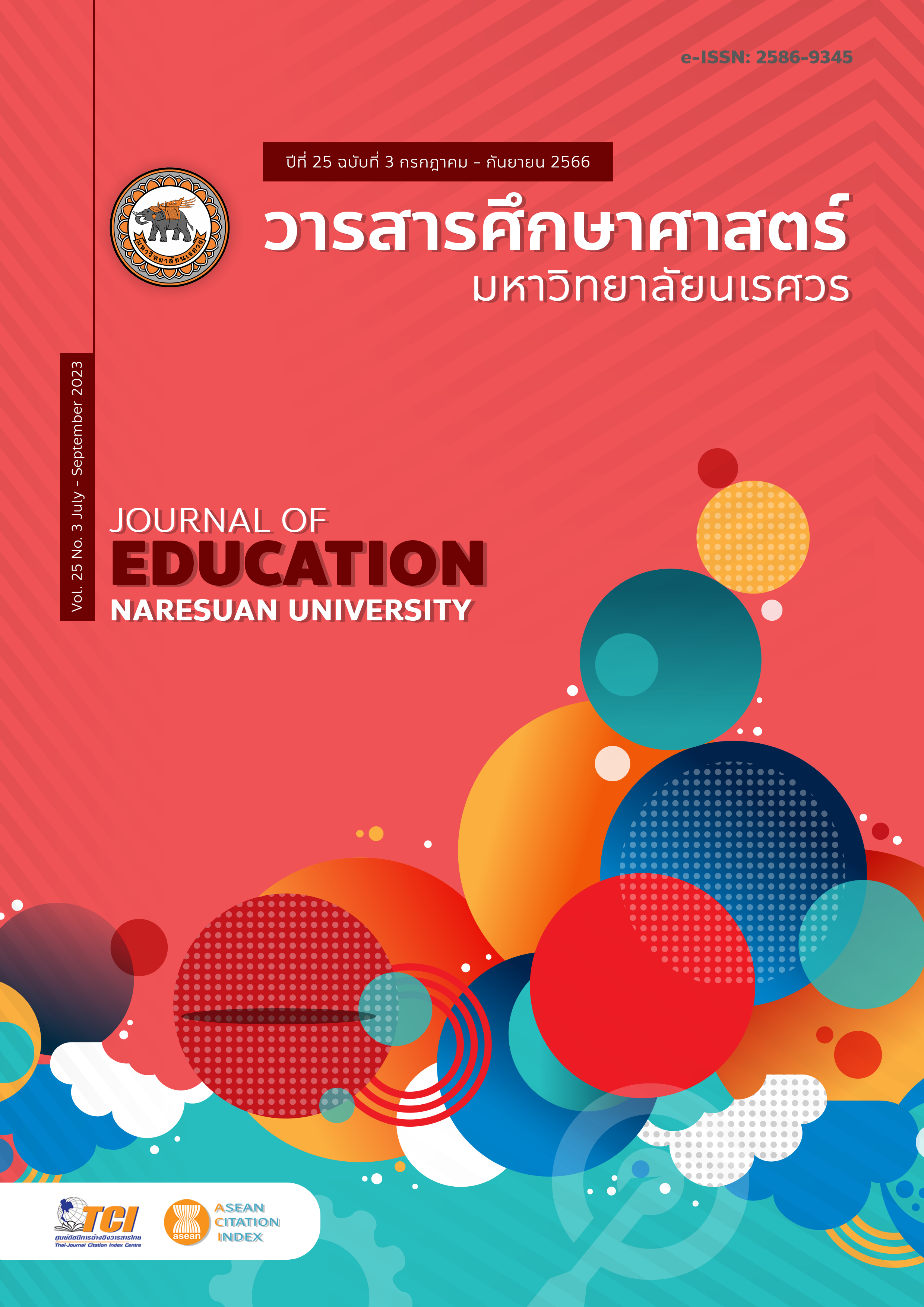DEVELOPMENT OF CAREER – BASED SCIENCE CURRICULUM FOR LOWER SECONDARY LEVEL OF NONG KHAO SCHOOL PHICHIT PROVINCE การพัฒนาหลักสูตรวิทยาศาสตร์เพื่ออาชีพระดับมัธยมศึกษาตอนต้น โรงเรียนบ้านหนองขาว จังหวัดพิจิตร
Main Article Content
Abstract
Learning of career-based science will enhance students to illustrate how they can apply science to their career or higher education. This research aimed to develop and evaluate a career-based science curriculum for the lower secondary level of Baan Nong Khao School, Phitchit Province. It was participatory research with the collaboration of the curriculum development committee appointed by the school principal. The committee collaboratively designed the curriculum structure and developed the courses, course descriptions, and learning resources. Twenty-seven experts in Science Teaching, Vocational Education, and Curriculum and Instruction evaluated the developed curriculum. The results showed that the development of the curriculum was based on the four elements as follows: 1) the careers involved in the design of the career-based curriculum are industry, agriculture, food technology, agricultural work, industrial machinery, agricultural technology, and electrical engineering, 2) the curriculum structure is a three-year curriculum in the two-semester system with 100 hours or 2.5 credits per semester, 3) the six career-based science subjects included Science and Agricultural Industry, Science and Food Technology, Science and Agricultural Work, Science and Industrial Machinery, Science and Agricultural Technology, and Science and Electrical Engineering, and 4) Learning resources include learning websites, virtual laboratory documents, and YouTube channels. Moreover, according to the evaluation of the designed curriculum, the experts concurred that the designed curriculum is appropriate at a high and an extremely high level.
Article Details

This work is licensed under a Creative Commons Attribution-NonCommercial-NoDerivatives 4.0 International License.
The owner of the article does not copy or violate any of its copyright. If any copyright infringement occurs or prosecution, in any case, the Editorial Board is not involved in all the rights to the owner of the article to be performed.
References
Allen, M. M. (2016). Do years of teaching experience matter? Teacher expertise blog series, part one. Education Week. Retrieved May 24, 2019, from
Buasri, T. (1999). Curriculum theory: Design and development. Bangkok: Erawan Printing. [in Thai]
Chitchayawanit, K. (2019). Learning management. Bangkok: Chulalongkorn University Press. [in Thai]
Dejarnette, N. K. (2012). America’s children: providing early exposure to STEM (science, technology, engineering and math) initiatives. Education, 133(1), 77-84.
Department of Academic Affairs (2001). The Basic Education Core Curriculum (2nd ed.). Bangkok: The Express Transportation Organization of Thailand. [in Thai]
Ferriman, J. (2013). 3 Types of e-Learning. Retrieved May 25, 2019, from https://www.learndash.com/3-types-of-elearning/
Kenneth, B. H. (2010). Career education implications for counselors. Ann Arbor, MI: University of Michigan.
Mohawk. (2020). How to write a course description. Retrieved February 27, 2020, from https://www.mohawkcollege.ca/employees/centre-for-teaching-learning/curriculum-development/how-to-write-a-course-description
Office of the Basic Education Commission. (2011). Guidelines for the provision of basic education for career: research findings. Bangkok: Sriboon Computer-printing Press. [in Thai]
Office of the Permanent Secretary, Ministry of Education. (2008). The development of accelerating career strength in non-formal education curriculum 2008: Textbook. Bangkok: Ministry of Education. [in Thai]
Ornstein, A. C., & Hunkins, F. (1993). Curriculum foundations: Principles and theory (2nd ed.). Boston: Allyn and Bacon.
Pairoje, N. (2019). Development of learning resource bank for graduate diploma in teaching profession. Journal of Humanities and Social Sciences, Rajapruk University, 5(supplement), 225–237. [in Thai]
Promwong, C. (2000). Teaching and learning communication process in educational technology and communication teaching kits. Nonthaburi: Sukhothai Thammathirat University. [in Thai]
Resnick, M., Bruckman, A., & Martin, F. (1996). Pianos not stereos: Creating computational construction kits. Communications of the ACM, 367, 64-71.
Ruchaipanich, W. (2016). Perspectives on the problems of Thai education towards a guideline for the development of the quality of education. Journal of Research for Development Social and Community, Rajabhat Maha Sarakham University, 3(2), 2-9. [in Thai]
Srisa-ard, S. (2009). Development of learning resources in physics for high school level (Doctoral dissertation). Bangkok: Kasetsart University. [in Thai]
Stanford. (2020). What is a course description? Retrieved February 20, 2020, from https://registrar.stanford.edu/staff/courses-scheduling-and-bulletin/courses/what-course-description


